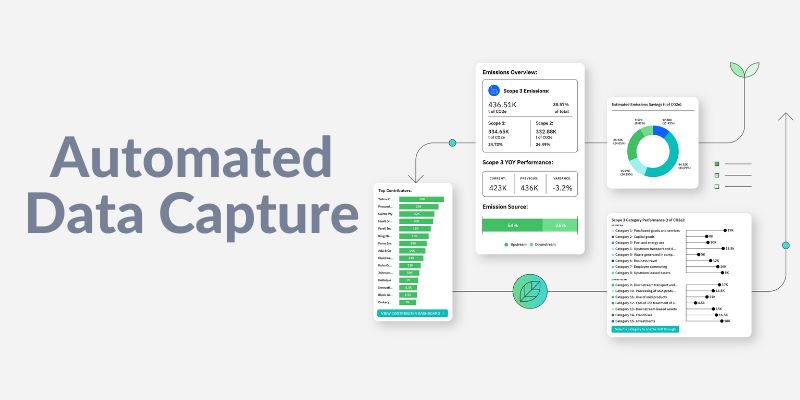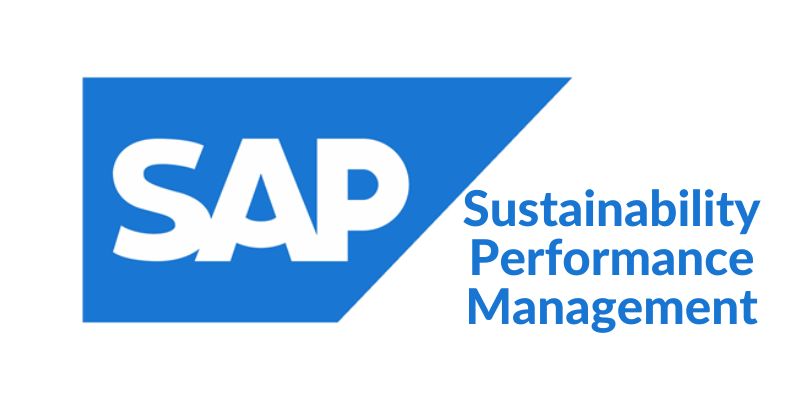In an era where businesses are increasingly recognizing the importance of sustainable practices, the demand for sophisticated tools to manage sustainability data is on the rise. Sustainability data management software plays a pivotal role in helping organizations measure, monitor, and enhance their environmental, social, and economic performance. This article from Topweb delves into the key features and functionalities of sustainability data management software, exploring how it empowers businesses to navigate the complex landscape of sustainability.
1. Automated Data Capture: Sustainability Data Management Software
Sustainability data management software excels in automating the capture of data from diverse sources. By leveraging technologies such as IoT devices and sensors, these tools ensure a seamless and real-time collection process. This not only enhances efficiency but also allows organizations to gather comprehensive and accurate sustainability metrics. The automation aspect of sustainability data management software is fundamental in reducing manual effort and improving the reliability of the collected data.

2. Data Organization: Creating a Structured Foundation
Efficient organization of sustainability data is a cornerstone of effective management. Sustainability data management software facilitates the classification of data into relevant themes, such as energy consumption, waste management, or social impact. Through data tagging, users can add metadata, enabling better organization and retrieval of information. This structured approach ensures that organizations can easily navigate through vast datasets, gaining valuable insights into their sustainability performance.
3. Data Analysis: Unveiling Trends and Performance Metrics
One of the standout features of sustainability data management software is its robust data analysis capabilities. These tools provide customizable reports and dashboards that visualize key sustainability metrics and performance indicators. With trend analysis functionalities, organizations can identify patterns over time, allowing for strategic decision-making. Benchmarking features further empower businesses by providing insights into how their sustainability performance compares to industry standards or internal goals.
4. Integration: Streamlining Data Exchange
Sustainability data management software recognizes the importance of integration with other enterprise systems. Seamless integration with ERP and CRM systems ensures a smooth flow of data across different organizational functions. APIs play a crucial role in connecting the software with third-party tools and external data sources. This integration capability enhances the overall efficiency of sustainability initiatives by streamlining data exchange and eliminating silos.

5. Compliance and Standards: Navigating Regulatory Landscapes
Adhering to sustainability regulations and standards is paramount for organizations committed to responsible practices. Sustainability data management software includes features for compliance monitoring, ensuring that businesses align with relevant sustainability regulations. Moreover, these tools assist in obtaining and maintaining certifications such as ISO 14001 or B Corp certification, providing a structured approach to compliance within the complex regulatory landscape.
6. Collaboration and Stakeholder Engagement: Building Connections
Effective collaboration and engagement with stakeholders are crucial components of sustainable business practices. Sustainability data management software facilitates communication with both internal and external stakeholders. Whether it’s customers, investors, or regulators, these tools provide a platform for transparent and meaningful dialogue. Collaboration tools within the software also foster teamwork among different departments involved in sustainability initiatives, creating a unified approach towards shared goals.
7. Audit Trail and Traceability: Ensuring Transparency and Accountability
Maintaining transparency and accountability is paramount in sustainability reporting. Sustainability data management software includes features such as data auditing and traceability. The software creates an auditable trail of changes made to sustainability data, ensuring accountability for any modifications. Additionally, traceability allows users to trace the origin of data points back to their sources, enhancing the credibility and reliability of reported sustainability metrics.
8. Scalability and Flexibility: Adapting to Evolving Needs
The scalability and flexibility of sustainability data management software are vital for businesses with dynamic sustainability goals. The software is designed with a scalable architecture, accommodating the growing volume of sustainability data as organizations expand their initiatives. Customization features ensure that the software adapts to the specific needs and goals of each organization, providing a tailored approach to sustainability data management.
9. Enablon: A Comprehensive Suite for Holistic Management
Among the notable players in the sustainability data management software landscape is Enablon. Renowned for its comprehensive suite of sustainability, environmental, health, and safety (EHS), and risk management solutions, Enablon empowers organizations to manage their sustainability performance seamlessly. With features ranging from automated data capture to compliance monitoring, Enablon stands as a robust solution for businesses aiming to navigate the complexities of sustainability management.
10. SAP Sustainability Performance Management: Integrating for Strategic Insights
SAP Sustainability Performance Management is another prominent player in the field, emphasizing integration with SAP systems. This software enables organizations to manage their sustainability performance while leveraging existing SAP infrastructure. By providing strategic insights through data analysis and reporting, SAP Sustainability Performance Management becomes a valuable asset for businesses looking to align sustainability goals with broader organizational strategies.

11. EcoVadis: Enhancing Supply Chain Sustainability
EcoVadis specializes in sustainability ratings and assessments, particularly focusing on supply chain management. This software solution goes beyond the organizational boundaries, offering a platform for businesses to evaluate and improve the sustainability performance of their suppliers. EcoVadis plays a critical role in fostering sustainability across the entire value chain, making it an essential tool for organizations with a commitment to responsible sourcing.
Conclusion
As businesses increasingly recognize the importance of sustainability, the role of sustainability data management software becomes pivotal. These tools, with their diverse features and functionalities, provide a structured and efficient approach to managing sustainability data. From automated data capture to integration with existing systems and compliance monitoring, sustainability data management software equips organizations with the tools they need to navigate the intricate landscape of sustainability. As the demand for responsible business practices continues to grow, investing in advanced sustainability data management software is not just a choice; it’s a strategic imperative for building a sustainable future.